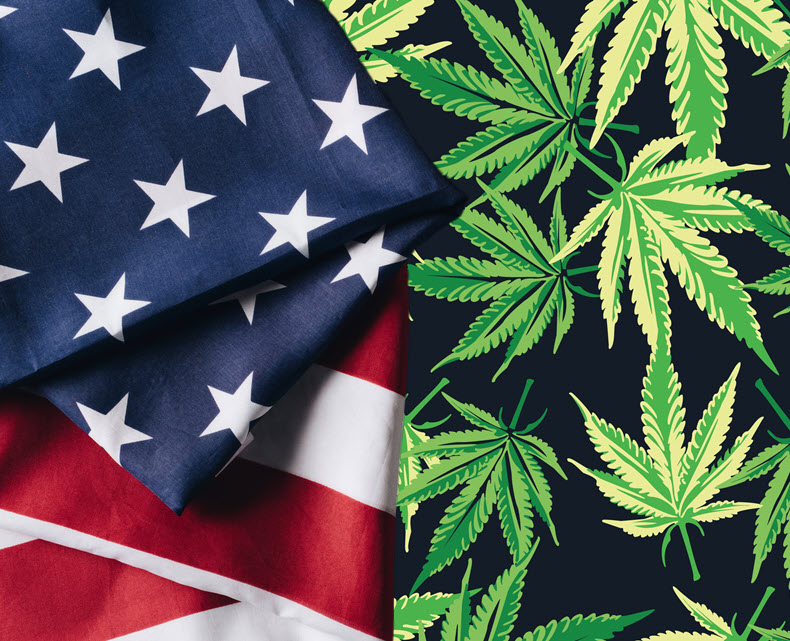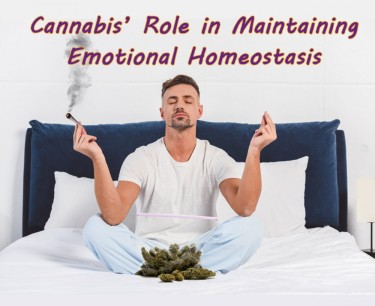Cannabis News
Dating a Narcissist, Try an Ayahuasca Weekend Getaway!
Published
1 year agoon
By
admin

A recent study, released earlier this year proposes that ayahuasca may serve as a remedy for excessive self-love. Published in the Journal of Personality Disorders in April, the research is based on a three-month analysis involving over 300 adults. The study indicates that “ceremonial use of ayahuasca” led to self-reported alterations in narcissism.
However, the researchers advise caution, noting that the changes in effect size were marginal. Results varied across convergent measures, and observers reported no significant shifts. Despite these nuances, the study cautiously supports the notion of adaptive changes in narcissistic antagonism within three months following ceremonial experiences, suggesting potential efficacy for treatment.
Nevertheless, the study did not reveal significant shifts in narcissism. The researchers emphasized the need for further investigation to comprehensively assess the applicability of psychedelic-assisted therapy in addressing narcissistic traits and ego death, mainly through studies involving individuals exhibiting higher antagonism and employing antagonism-focused therapeutic approaches.
Ayahuasca and Narcissism: A Three-Month Analysis
Conducted with 314 adults participating in ayahuasca ceremonies at retreat centers in Peru and Costa Rica, the study imposed a minimum age requirement of 18 years. It excluded individuals with a personal or family history of psychotic disorders. Recruitment occurred through emails sent two weeks before the reservation start date at an ayahuasca retreat center.
Participants were incentivized with a detailed report on their personality changes and the opportunity to enter a raffle for a week-long retreat at one of the ayahuasca centers, valued at $1580, as compensation for their involvement, as reported by the publication.
The researchers mandated participants to fill out three surveys, with an added incentive of $20 or $30 for each survey completed. These surveys took place eight days before participants’ attendance at an ayahuasca retreat center, during their stay, and three months post-retreat.
The assessments encompassed evaluations of narcissism, utilizing tools such as the Narcissistic Personality Inventory, Psychological Entitlement Scale, and a composite derived from the five-factor model personality facets.
Additionally, 110 informants, the participants’ peers, carried out these assessments at the initiation and conclusion of the three months post-retreat.
Ayahuasca’s Growing Acceptance and Transformative Impact
In recent years, ayahuasca and other psychedelics have gained widespread acceptance, with the public, research community, and governments increasingly recognizing their potential for enhancing mental health.
A study published last year revealed that individuals who have used ayahuasca generally experience more benefits than adverse effects from the drug. Originating from researchers in Australia, the study also acknowledged adverse effects among participants.
Many individuals are turning to ayahuasca as an alternative to conventional Western mental health treatments, driven by dissatisfaction with the latter.
However, the study emphasized that the transformative impact of this traditional medicine should not be underestimated, often leading to mental health or emotional challenges during the assimilation process.
While these challenges are typically temporary and viewed as part of a positive growth process, the authors cautioned that the risks are heightened for vulnerable individuals or when used in unsupportive contexts.
The study’s press release outlined the key findings, revealing that 69.9% of the sample reported acute physical health adverse effects.
The most prevalent physical effects included vomiting and nausea (68.2% of participants), headache (17.8%), and abdominal pain (12.8%). Only 2.3% of participants experiencing physical adverse events sought medical attention for their issues.
In terms of mental health effects, 55% of all participants reported adverse outcomes, such as hearing or seeing things (28.5%), feeling disconnected or alone (21.0%), and having nightmares or disturbing thoughts (19.2%).
Despite these mental health effects, 87.6% of respondents attributing them to a positive growth process believed that they were either entirely or somewhat part of such a process, as stated in the press release.
The researchers also identified several factors that make individuals more susceptible to experiencing adverse physical events. These factors include older age, the presence of a physical health condition or substance use disorder, lifetime ayahuasca use, and consuming ayahuasca in a non-supervised context.
The authors noted that ayahuasca can lead to notable adverse effects, albeit rarely severe, as evaluated by the criteria typically applied to assess prescription medicines.
They emphasize that assessing ayahuasca practices using the same parameters as prescription medicines is challenging because the diverse effects of ayahuasca encompass difficult experiences that are inherent to the overall experience, some of which are considered integral to its healing process.
Policy Shifts and Legal Landscape: The Case of Berkeley, California
In Berkeley, California, this past summer, city officials endorsed a measure to decriminalize ayahuasca. The effort articulates the City of Berkeley’s intent not to allocate city resources for investigations, detentions, arrests, or prosecutions stemming from alleged violations of state and federal laws related to the use of Entheogenic Plants.
It explicitly establishes the policy that no entity within the city, including but not limited to the Berkeley Police Department personnel, shall employ any city funds or resources to aid in the enforcement of laws that impose criminal penalties for the use and possession of Entheogenic Plants by adults who are at least 21 years old.
The decriminalization of ayahuasca in Berkeley, California, signifies a progressive shift in the city’s approach to entheogenic plants. The approved measure reflects the city officials’ determination to prioritize a stance of non-interference and non-utilization of resources concerning adults’ use of these substances.
By adopting a policy that explicitly disengages city departments, agencies, and law enforcement from contributing to the enforcement of criminal penalties for the possession and use of Entheogenic Plants, the City of Berkeley embraces a more nuanced and open-minded perspective.
Conclusion
The conclusion drawn from the study and the broader discussion is clear: the therapeutic potential of ayahuasca, particularly in addressing narcissistic traits, is a nuanced and evolving area that warrants continued exploration. The study provides a window into potential adaptive changes, underscoring the need for a cautious approach to psychedelic-assisted therapy. It emphasizes acknowledging such treatments’ transformative impact and possible adverse effects.
With the increasing interest in alternative mental health approaches, it becomes imperative to conduct further research and cultivate a comprehensive understanding of the risks and benefits associated with ayahuasca.
WHAT IS AYAHUASCA? READ ON…
You may like
-


What if the World’s Biggest Tobacco Company Entered the Cannabis Industry?
-


cheeba cannabis & hemp academy Presents The Rise of the African Cannabis Industry Free WEBINAR tuesday, 4th February, 7 – 8:30pm SAST
-


5 Ways To Manage Return To Office
-


The Best Cannabis Infused Pasta Sauce For The Weekend
-


Ohio GOP lawmaker’s bill would upend voter-approved adult-use marijuana
-


Does Will Ferrell Consume Marijuana
Cannabis News
What if the World’s Biggest Tobacco Company Entered the Cannabis Industry?
Published
2 hours agoon
February 1, 2025By
admin

The World’s Biggest Tobacco Company Is Quietly Entering The Weed Industry
What Does This Mean For The Future Of Weed?
From the 1950’s to the 1990’s, cigarettes were considered to be a ‘cool’ habit and somewhat of a fashion accessory globally.
There was even a time when Hollywood celebrities were photographed smoking, which made them seem like the epitome of sophistication. Big names including Humphrey Bogart and James Dean were pictured smoking, but it was also so common and accepted around the world. That did not last long, as eventually evidence that cigarettes killed people from cancer and other fatal health conditions became impossible to ignore.
While there were many names in Big Tobacco that helped popularize the consumption of cigarettes, and made it easy for people to get access to it, Philip Morris International (PMI) were one of the biggest players – and they still are, to this day. They own some of the most common cigarette brands that are consumed around the world, including Marlboro, Chesterfield, and L&M. Surely, one can blame PMI’s products for tempting people to make poor health choices that may have taken them to the grave…
According to the World Health Organization, tobacco smoking is responsible for the deaths of around 8 million people globally.
Yet, with the rise of cannabis, PMI wanted a piece of the pie.
The History Of Philip Morris’ Interests In Cannabis
If you’re only hearing about Big Tobacco’s interest in cannabis right now, you might be shocked to learn that their interest in weed goes as far back as 1969. There are some internal documents that prove PMI was interested in learning about the potential of cannabis. However, they were considering weed a competitor as well as a potential product.
In fact, a 1970 memo even shows that PMI acknowledges the possibility of marijuana legalization.
Fast forward to 2016, when PMI made a significant investment worth $20 million to an Israeli biotech firm specializing in medical cannabis, called Syqe Medical. At the time, Syqe was working on developing a medical marijuana inhaler which would provide metered dosing of weed for medical patients. According to the deal, Syqe Medical will also work on developing certain technologies that would enable Philip Morris to minimize the health effects caused by smoking.
By 2023, Philip Morris made a deal to acquire Syqe Medical for a cool $650 million, as long as there were certain conditions met. In a report by Calcalist, the deal features a number of milestones, though the bottom line is that if the inhaler developed by Syqe passes the clinical trials, PMI will then go ahead to buy all shares of the company for the aforementioned amount.
Another Silent Move Into The Weed Space
More recently, in January 2025, a press release was published detailing Vectura Fertin Pharma’s (VFP), a subsidiary of Philip Morris International, joint venture with a Canadian biotech firm focusing on cannabinoid-based drugs – Avicanna.
According to the press release, the joint venture seeks to promote cannabis accessibility and research. Avicanna already has a stronghold in the wellness sector. However, the press release hardly makes any other mention about the involvement of Philip Morris International, but it’s clear that Big Tobacco has long had their eye in the cannabis industry. Back in 2016, when they first got involved with Syqe Medical, it highlighted the firm’s interest in wellness, but the partnership with Avicanna cements that.
Changes In Consumer Perception And Habits
It only makes sense for Big Tobacco to pivot to cannabis – or wellness, in general. After all, if you can’t beat em, join em!
And it’s clear: for several years now, there has been a decrease in cigarette smoking; young adults are now shifting from tobacco, as well as alcohol, and increasing their cannabis consumption instead.
And Philip Morris isn’t the only player in Big Tobacco who’s expressed an interest in a slice of the (weed) pie. Back in 2017, American holding company Altria Group began moving away from cigarettes, with their $1.8 billion investment into the Cronos Group, a large Canadian cannabis company. Altria owns several big American companies including Philip Morris; so much so, that even their website now declares the tagline: “Moving Beyond Smoking”.
However, Altria faced issues due to regulatory concerns.
British American Tobacco (BAT) has also been interested in cannabis. For some time now, they’ve been researching weed products, particularly infusing CBD and THC into their electronic cigarettes which are sold under the Vuse and Vype brand names. In 2021, BAT began a trial launch of CBD products in the United Kingdom.
RJ Reynolds, which is also now under British American Tobacco, has also considered joining the weed industry. According to internal documents, RJ Reynolds has considered cannabis both an opportunity and a competitor as far back as the 1970s.
Conclusion
At the end of the day, cannabis isn’t a real threat to the tobacco industry. The tobacco industry simply shot itself on the foot – all it needed was time, to prove that it does indeed cause cancer and kill people. On the other hand, cannabis was a friend more than a foe: legalization and a growing consumption of weed proved its ability to save lives.
That said, the relationship between tobacco and weed continues to evolve. Through cannabis legalization, Big Tobacco can learn from the challenges and opportunities that cannabis had to go through. It can be said that one thing is clear, though: the drop in tobacco consumption is a major opportunity for cannabis, with more people looking to substitute tobacco with a healthier alternative.
As a response, we may continue to see tobacco companies investing in Big Cannabis – just as we’ve seen in the examples mentioned above. This partnership is fantastic news for both industries, and we can only hope to see more!
PHILIP MORRIS’ MOVES IN CANNABIS, READ ON…
WHY DID PHILIP MORRIS JUST BUY A MEDICAL MARIJUANA INHALER COMPANY?
Cannabis News
Who are the Next 5 States to Legalize Recreational or Medical Cannabis Starting in 2025?
Published
1 day agoon
January 31, 2025By
admin

As the landscape of marijuana legalization continues to evolve across the United States, 2025 is shaping up to be a pivotal year for states considering reforms. Advocacy groups are closely monitoring legislative developments and public sentiment, identifying specific states that are likely to make significant strides toward legalization. This article explores the states most likely to legalize marijuana in 2025, examining the political climate, public opinion, and advocacy efforts that may influence these changes.
The Current State of Marijuana Legalization in the U.S.
As of 2023, a growing number of states have legalized marijuana for both medical and recreational use. According to the National Conference of State Legislatures (NCSL), 21 states and Washington D.C. have legalized recreational marijuana, while 37 states allow medical marijuana use. This rapid expansion reflects changing public attitudes toward cannabis, which have shifted dramatically over the past two decades.
Public Opinion Trends
Public support for marijuana legalization has reached unprecedented levels. A Gallup poll conducted in late 2022 found that 68% of Americans support legalizing marijuana, a significant increase from just 25% in 1995. This shift in public opinion is crucial for lawmakers as they consider new legislation. Advocacy groups are leveraging this support to push for reforms in states where legalization has yet to occur.
The Role of Advocacy Groups
Organizations such as the National Organization for the Reform of Marijuana Laws (NORML) and the Marijuana Policy Project (MPP) play a vital role in advocating for legalization. They provide research, mobilize grassroots campaigns, and lobby lawmakers to promote cannabis reform. Their insights into which states are most likely to legalize in 2025 are based on legislative trends, political dynamics, and public sentiment.
Key States Likely to Legalize Marijuana in 2025
Pennsylvania has emerged as a strong contender for marijuana legalization in 2025. The state has a robust medical marijuana program established in 2016 that has seen significant success, with over 600,000 registered patients. However, advocates argue that the time has come to expand access to adult-use cannabis.
Political Support
The recent election of Governor Josh Shapiro has energized legalization efforts. Shapiro has expressed support for legalizing recreational marijuana and has indicated a willingness to work with lawmakers across party lines. In early 2025, a bipartisan bill is expected to be introduced that aims to create a regulated market for adult-use cannabis.
Advocacy Efforts
Advocacy groups are actively mobilizing support among residents and lawmakers alike. Campaigns highlighting the potential economic benefits—such as job creation and tax revenue—are gaining traction. Additionally, public polls indicate strong support among Pennsylvanians for legalization, further bolstering advocacy efforts.
Hawaii has long been known for its progressive stance on cannabis; it was one of the first states to legalize medical marijuana in 2000. However, efforts to legalize recreational use have stalled in previous legislative sessions.
Current Developments
In 2025, advocates are optimistic about renewed efforts to pass comprehensive cannabis legislation. The Senate previously approved a bill aimed at legalizing recreational use, but it failed in the House due to opposition from conservative lawmakers.
Political Dynamics
The political landscape appears more favorable this year with new leadership in the House that may be more open to discussing cannabis reform. Governor Josh Green has also expressed support for legalization, emphasizing its potential economic benefits for Hawaii’s tourism-driven economy.
Advocacy Strategies
Advocacy groups are focusing on grassroots campaigns and community engagement to build momentum for legalization. Public forums and educational events aim to inform residents about the benefits of legalization while addressing concerns regarding regulation and safety.
South Carolina has made strides toward medical marijuana legalization but remains one of the few states without comprehensive access to cannabis products. In recent years, lawmakers have introduced several bills aimed at establishing a medical program; however, these efforts have faced significant hurdles.
Legislative Prospects for 2025
In 2025, advocates are hopeful that a revived medical marijuana proposal will gain traction. The proposed legislation would allow patients with qualifying conditions access through licensed pharmacies under strict regulations.
Political Climate
The political climate remains challenging, with resistance from conservative factions within the legislature. However, increasing public support—evidenced by recent polls showing over 70% approval for medical cannabis—may sway some lawmakers toward supporting reform.
Advocacy Efforts
Advocacy organizations like SC Compassionate Care are working tirelessly to educate the public and legislators about the benefits of medical marijuana. They emphasize patient stories and health outcomes as part of their strategy to garner support.
Kansas is one of the few remaining states without any form of legalized marijuana use. Despite this restrictive environment, there is a growing movement advocating for medical cannabis legislation.
Legislative Opportunities
In 2025, advocates believe there is a significant opportunity for progress on medical marijuana legislation. Several bills have been introduced in previous sessions that gained some bipartisan support but ultimately failed due to opposition from key lawmakers.
Public Sentiment
Public opinion in Kansas is shifting; recent surveys indicate that nearly 60% of residents support legalizing medical marijuana. This growing acceptance may influence legislators who have previously opposed reform.
Advocacy Strategies
Groups like Kansas Cannabis Coalition are actively campaigning for change by organizing rallies and educational events throughout the state. They aim to raise awareness about the therapeutic benefits of cannabis while pushing for legislative action.
North Carolina has been making headlines regarding potential cannabis reform. While it currently allows limited use of CBD oil for certain medical conditions, comprehensive medical or recreational legalization remains elusive.
Political Dynamics
In recent years, there have been increased discussions among lawmakers about introducing medical marijuana legislation. The current governor supports reform efforts; however, opposition from conservative members poses challenges.
Advocacy Efforts
Advocacy groups such as NC NORML are working diligently to build grassroots support for legalization initiatives. They focus on educating citizens about cannabis benefits while lobbying legislators directly.
Wisconsin’s approach toward cannabis remains conservative compared to neighboring states like Illinois and Michigan. While some local municipalities have decriminalized possession or implemented medicinal programs at their discretion, comprehensive statewide reform is still lacking.
Legislative Prospects
Advocates believe that changing political dynamics could lead Wisconsin toward more progressive policies regarding both medical and adult-use legalization by 2025. Recent elections have resulted in a more favorable balance within state government regarding cannabis issues.
Public Support
Public opinion polls indicate strong support among Wisconsinites—over 60% favoring legalization efforts—creating an opportunity for advocates seeking legislative change.
Advocacy Strategies
Organizations like Wisconsin NORML are mobilizing citizens through educational campaigns aimed at dispelling myths surrounding cannabis while promoting its economic benefits through taxation and job creation associated with regulated markets.
New Hampshire has long been considered an outlier among New England states regarding cannabis laws; it legalized medical marijuana back in 2013 but has yet to pass adult-use legislation despite numerous attempts over recent years.
Current Developments
In early 2025, advocates anticipate renewed efforts aimed at legalizing recreational use through proposed bills introduced during legislative sessions scheduled throughout spring months ahead.
Political Climate
While there is bipartisan interest among some legislators regarding potential reforms related specifically towards taxation structures associated with regulated markets—opposition remains strong from conservative factions within government bodies overall limiting chances significantly unless public pressure mounts significantly enough leading into future elections cycles ahead!
Virginia made headlines when it legalized recreational cannabis possession starting July 1st ,2021—but sales remain unregulated until further action occurs within state government bodies responsible overseeing these matters moving forward!
Legislative Prospects
Advocates believe that enhancing existing laws by adding regulated sales will be crucial steps towards creating an effective market structure benefiting consumers while generating tax revenue needed fund essential services statewide!
Conclusion
As we look ahead into 2025—the landscape surrounding marijuana legalization continues evolving rapidly across various states nationwide! With growing public support coupled alongside advocacy group efforts pushing forward reforms—it’s clear many opportunities exist within multiple jurisdictions ripe opportunities await those willing engage actively participate shaping future policies governing this vital industry.
WHAT STATES MAY NEVER LEGALIZE WEED, READ ON…
Cannabis News
Emotional Regulation Get Easier with Cannabis?
Published
2 days agoon
January 30, 2025By
admin

Emotional regulation refers to an individual’s ability to manage to various emotional stimuli in an appropriate manner.
When one is able to regulate their emotions, it means that they are able to withhold intense and extreme emotions, even when the situation normally calls for it. As a result, they are able to express their emotions in a proper way; it is controlled but not suppressed, it’s mindful and aware. Effective emotional regulation has been linked to emotional maturity, better relationships, and an improvement in overall well-being.
However, using certain drugs as well as alcohol have proven to negatively impact one’s ability to regulate their emotions. This is because drugs engage with the neurotransmitters in the brain, including those responsible for the production of serotonin and dopamine, which are necessary for healthy emotional regulation. When we consume central nervous system depressants such as alcohol, as well as stimulants in drugs, these severely impede our serotonin levels which can cause depression and other mental health issues. In addition, drugs have been found to affect emotional dysregulation and dependence.
But not cannabis.
According to the results of a clinical study conducted by researchers at the Oregon State University and Washington State University, inhaling weed containing over 20% THC was not found to have any impact on emotional regulation.
For the study, investigators analyzed the effects of weed smoking on 12 adults; all the participants already had experience smoking weed in the past and even used their own cannabis supply. The researchers then analyzed the mood and emotional regulation capabilities of the participants during times of sobriety as well as when they were stoned from weed. Surprisingly, they found that the subjects’ performance didn’t differ when made to undergo several tasks after smoking weed.
“There was no evidence that acute high-potency cannabis use affected participants’ implicit or explicit emotional regulation,” they said. The researchers also noted that the participants acknowledged there was an improvement in their mood and anxiety reduction after using weed.
“The current pilot study assessed whether being under the influence of high-potency cannabis flower affects emotion regulation among a sample of young adults who use cannabis regularly,” they concluded. “While participants reported more positive mood and decreases in anxiety while intoxicated, there was no evidence to suggest that intoxication from high-potency cannabis flower affected emotion regulation,” the researchers wrote.
How Else Can Cannabis Benefit Emotional Health?
Thousands of people rely on cannabis for its benefits on their emotional and mental well-being. In fact, most cannabis consumers have a positive association with cannabis and emotions, since it can effectively help them reduce encounters of negative emotions in general. For example, instead of ruminating in stress and worry, people can medicate with weed at the end of the day. This not only aids in relaxation, but also offers a natural, safe outlet for coping with the stresses of everyday life.
In the same vein, this is also why more individuals, particularly those in high-stress positions such as parents, CEO’s, and entrepreneurs, have made microdosing or getting high a part of their daily life. No longer is alcohol seen as the only way to cope: weed is in, and it’s a much healthier way of dealing with life.
While this may be something that science can’t explain just yet, cannabis does have the unique ability to slow down one’s racing thoughts and the endless mental chatter, while helping make it easier to focus on the present. For this reason and more, weed has already been widely integrated into many wellness retreats in legal cities. Weed, mindfulness, and yoga simply go together so well, enhancing the peaceful effects of one another. Cannabis consumers can also enjoy a great deal of relaxing activities with a heightened sense of enjoyment, effectively helping one forget about their negative emotions such as anger, stress, and frustration.
So the next time you’re feeling extremely irritable or pissed off, why not pop a gummy or have a toke, and spend some time outside. You’ll see how difficult it can be to stay mad.
What You Take Matters
For those who want to use cannabis to improve their emotional regulation, what you take – and how much of it – matters just as much too.
That’s why there are many more studies suggesting that low-dose THC is best especially for anxiety and stress. On the other hand, high doses of THC can be detrimental for your mental and emotional well-being.
According to a 2017 study conducted by researchers at the University of Illinois at Chicago and the University of Chicago: “We found that THC at low doses reduced stress, while higher doses had the opposite effect, underscoring the importance of dose when it comes to THC and its effects,” they said. The same is also true for psychedelics, which can partly explain the popularity of microdosing psychedelics. Meanwhile, anything that can you too high can in fact, cause intense anxiety and stress.
Conclusion
It can feel almost impossible to avoid stressful situations that can cause you to feel out of whack, emotionally. In fact, stress is just a normal part of life. But losing your temper, ruminating in negative emotions for hours, and being so upset that it affects other aspects of your life, is not normal.
That said, there are a variety of ways you can deal with stress and the negative emotions it brings. Cannabis can be a key ingredient for helping you restore balance in your emotions as well as mental health.
CANNABIS AND EMOTIONAL HOMEOSTATIS, READ ON…
CANNABIS FOR EMOTIONAL HOMESTATIS – WHAT WE NOW KNOW!

What if the World’s Biggest Tobacco Company Entered the Cannabis Industry?

cheeba cannabis & hemp academy Presents The Rise of the African Cannabis Industry Free WEBINAR tuesday, 4th February, 7 – 8:30pm SAST

5 Ways To Manage Return To Office

The Best Cannabis Infused Pasta Sauce For The Weekend

Ohio GOP lawmaker’s bill would upend voter-approved adult-use marijuana

Does Will Ferrell Consume Marijuana

Who are the Next 5 States to Legalize Recreational or Medical Cannabis Starting in 2025?

Star signs and cannabis strains: January 2025 horoscopes

Exactly What Is A Muse

Marijuana Microdosing May Help Early Dating Nerves

Distressed Cannabis Business Takeaways – Canna Law Blog™

United States: Alex Malyshev And Melinda Fellner Discuss The Intersection Of Tax And Cannabis In New Video Series – Part VI: Licensing (Video)

What you Need to Know

Drug Testing for Marijuana – The Joint Blog

NCIA Write About Their Equity Scholarship Program

It has been a wild news week – here’s how CBD and weed can help you relax

Cannabis, alcohol firm SNDL loses CA$372.4 million in 2022

A new April 20 cannabis contest includes a $40,000 purse

Your Go-To Source for Cannabis Logos and Designs

UArizona launches online cannabis compliance online course
Trending
-

 Cannabis News2 years ago
Cannabis News2 years agoDistressed Cannabis Business Takeaways – Canna Law Blog™
-

 One-Hit Wonders2 years ago
One-Hit Wonders2 years agoUnited States: Alex Malyshev And Melinda Fellner Discuss The Intersection Of Tax And Cannabis In New Video Series – Part VI: Licensing (Video)
-

 Cannabis 1012 years ago
Cannabis 1012 years agoWhat you Need to Know
-

 drug testing1 year ago
drug testing1 year agoDrug Testing for Marijuana – The Joint Blog
-

 Education2 years ago
Education2 years agoNCIA Write About Their Equity Scholarship Program
-

 Cannabis2 years ago
Cannabis2 years agoIt has been a wild news week – here’s how CBD and weed can help you relax
-

 Marijuana Business Daily2 years ago
Marijuana Business Daily2 years agoCannabis, alcohol firm SNDL loses CA$372.4 million in 2022
-

 California2 years ago
California2 years agoA new April 20 cannabis contest includes a $40,000 purse







